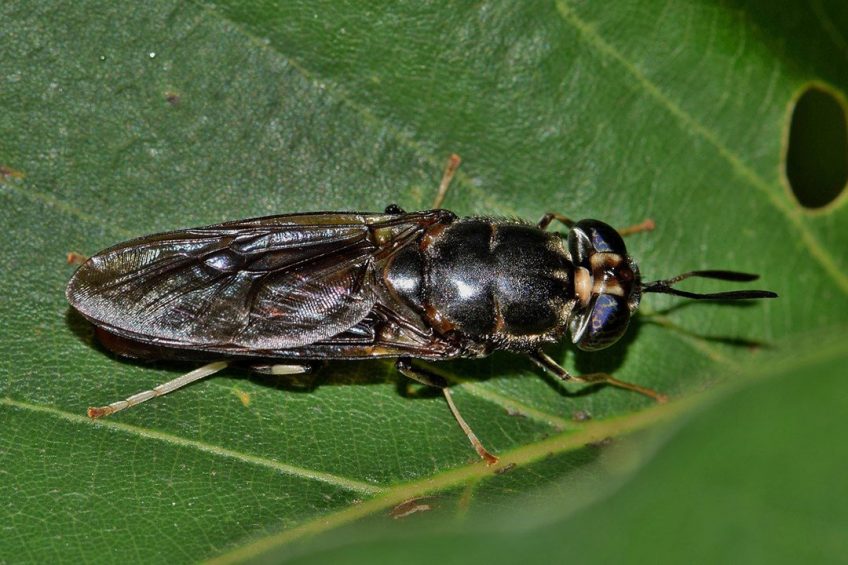Black soldier fly larvae oil as a fat source in broilers

A study conducted with Konkuk University in Seoul, South Korea, set out to determine if black soldier fly larvae oil could impact growth performance and gut health in fast-growing broiler chickens.
Insects are becoming more popular as an alternative to conventional protein ingredients for poultry feed. The black soldier fly can convert the large quantities food or animal wastes into edible protein and fats during their growth.
Black soldier fly larvae (BSFL) contains:
- up to 40% protein rich in essential amino acids,
- more than 28% lipids, and
- minerals such as calcium and phosphorous.
It has been suggested that insect oil could replace soybean oil in broiler chicken nutrition without compromising their growth performance and nutrient digestibility. BSFL oil is rich in medium-chain fatty acids such as lauric acid, which is known for an antimicrobial effect on gut bacteria.
In this study, fat sources of corn oil, coconut oil, and BSFL oil were used to see their effects on growth performance, carcass characteristic, volatile fatty acid production, body fatty acid composition, and serum parameters in broiler chickens.
The study on broilers
A total of 450 one-day-old male broiler chicks (Ross 308) were assigned to one of 3 dietary treatments. Experimental diets were formulated by mixing a corn and soybean meal-based diet with 3 different oils (corn oil, coconut oil, and BSFL oil) to reach 50g per kg of diet. Feed and water were provided ad libitum throughout the 30-day-feeding trial.
Dietary BSFL oil increased ileal weight-to-length ratio at day 30 after hatch, and increased ileal branched-chain fatty acid (P < 0.05) and moderately total short-chain fatty acid in 15-day-old broilers (P = 0.074). At day 30, ileal propionate was highest in the coconut oil group but caecal propionate was highest (P < 0.05) in the BSFL oil group. Fatty acid composition of abdominal fat was affected by dietary fat sources. Chickens fed diets containing coconut oil or BSFL oil had higher contents (P < 0.05) of saturated fatty acid being dominant in lauric and myristic acids compared with those fed on corn oil. On the other hand, the reverse trend was noted (P < 0.05) as to polyunsaturated fatty acids being dominant in corn oil compared with coconut oil and BSFL oil. Coconut oil vs. corn oil significantly increased total and high-density lipoprotein cholesterol. Finally, BSFL oil vs. corn oil significantly increased total antioxidant capacity in chickens.
It is concluded that dietary BSFL oil improves feed conversion ratio and increases the incorporation of medium-chain fatty acids into abdominal fat pad and serum antioxidant capacity in broiler chickens.
Join 31,000+ subscribers
Subscribe to our newsletter to stay updated about all the need-to-know content in the poultry sector, three times a week. Beheer
Beheer











 WP Admin
WP Admin  Bewerk bericht
Bewerk bericht